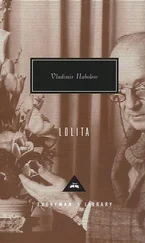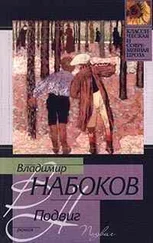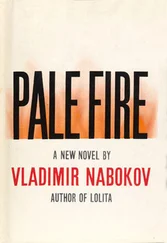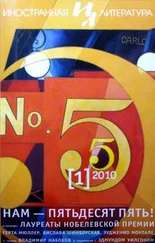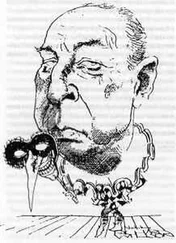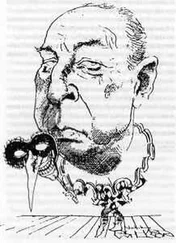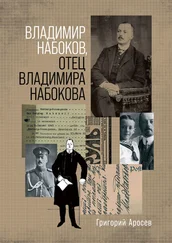Владимир Набоков - Pale Fire
Здесь есть возможность читать онлайн «Владимир Набоков - Pale Fire» весь текст электронной книги совершенно бесплатно (целиком полную версию без сокращений). В некоторых случаях можно слушать аудио, скачать через торрент в формате fb2 и присутствует краткое содержание. Жанр: Классическая проза, на английском языке. Описание произведения, (предисловие) а так же отзывы посетителей доступны на портале библиотеки ЛибКат.
- Название:Pale Fire
- Автор:
- Жанр:
- Год:неизвестен
- ISBN:нет данных
- Рейтинг книги:4 / 5. Голосов: 1
-
Избранное:Добавить в избранное
- Отзывы:
-
Ваша оценка:
- 80
- 1
- 2
- 3
- 4
- 5
Pale Fire: краткое содержание, описание и аннотация
Предлагаем к чтению аннотацию, описание, краткое содержание или предисловие (зависит от того, что написал сам автор книги «Pale Fire»). Если вы не нашли необходимую информацию о книге — напишите в комментариях, мы постараемся отыскать её.
Pale Fire — читать онлайн бесплатно полную книгу (весь текст) целиком
Ниже представлен текст книги, разбитый по страницам. Система сохранения места последней прочитанной страницы, позволяет с удобством читать онлайн бесплатно книгу «Pale Fire», без необходимости каждый раз заново искать на чём Вы остановились. Поставьте закладку, и сможете в любой момент перейти на страницу, на которой закончили чтение.
Интервал:
Закладка:
He had to check in at the airport at 2 P. M. The night before, when making his reservation, he had not been able to get a seat on the earlier flight to New Wye because of some convention there. He had fiddled with railway schedules, but these had evidently been arranged by a practical joker since the only available direct train (dubbed the Square Wheel by our jolted and jerked students) left at 5: 13 A. M., dawdled at flag stations, and took eleven hours to cover the four hundred miles to Exton; you could try to cheat it by going via Washington but then you had to wait there at least three hours, for a sleepy local. Buses were out so far as Gradus was concerned since he always got roadsick in them unless he drugged himself with Fahrmamine pills, and that might affect his aim. Come to think of it, he was not feeling too steady anyway.
Gradus is now much nearer to us in space and time than he was in the preceding cantos. He has short upright black hair. We can fill in the bleak oblong of his face with most of its elements such as thick eyebrows and a wart on the chin. He has a ruddy but unhealthy complexion. We see, fairly in focus, the structure of his somewhat mesmeric organs of vision. We see his melancholy nose with its crooked ridge and grooved tip. We see the mineral blue of his jaw and the gravelly pointillé of his suppressed mustache.
We know already some of his gestures, we know the chimpanzee slouch of his broad body and short hindlegs. We have heard enough about his creased suit. We can at last describe his tie, an Easter gift from a dressy butcher, his brother-in-law in Onhava: imitation silk, color chocolate brown, barred with red, the end tucked into the shirt between the second and third buttons, a Zemblan fashion of the nineteen thirties - and a father-waistcoat substitute according to the learned. Repulsive black hairs coat the back of his honest rude hands, the scrupulously clean hands of an ultra-unionized artisan, with a perceptible deformation of both thumbs; typical of bobêchemakers. We see, rather suddenly, his humid flesh. We can even make out (as, head-on but quite safely, phantom-like, we pass through him, through the shimmering, propeller of his flying machine, through the delegates waving and grinning at us) his magenta and mulberry insides, and the strange, not so good sea swell undulating in his entrails.
We can now go further and describe, to a doctor or to anybody else willing to listen to us, the condition of this primate's soul. He could read, write and reckon, he was endowed with a modicum of self-awareness (with which he did not know what to do), some duration consciousness, and a good memory for faces, names, dates and the like. Spiritually he did not exist. Morally he was a dummy pursuing another dummy. The fact that his weapon was a real one, and his quarry a highly developed human being, this fact belonged to our world of events; in his, it had no meaning. I grant you that the idea of destroying "the king" did hold for him some degree of pleasure, and therefore we should add to the list of his personal parts the capacity of forming notions, mainly general notions, as I have mentioned in another note which I will not bother to look up. There might be (I am allowing a lot) a slight, very slight, sensual satisfaction, not more I would say than what a petty hedonist enjoys at the moment when, retaining his breath, before a magnifying mirror, his thumbnails pressing with deadly accuracy on both sides of a full stop, he expulses totally the eely, semitransparent plug of a comedo - and exhales an Ah of relief. Gradus would not have killed anybody had he not derived pleasure not only from the imagined act (insofar as he was capable of imagining a palpable future) but also from having been given an important, responsible assignment (which happened to require he should kill) by a group of people sharing his- notion of justice, but he would not have taken that job if in killing he had not found something like that rather disgusting anticomedoist's little thrill.
I have considered in my earlier note (I now see it is the note to line 171) the particular dislikes, and hence the motives, of our "automatic man," as I phrased it at a time when he did not have as much body, did not offend the senses as violently as now; was, in a word, further removed from our sunny, green, grass-fragrant Arcady. But Our Lord has fashioned man so marvelously that no amount of motive hunting and rational inquiry can ever really explain how and why anybody is capable of destroying a fellow creature (this argument necessitates, I know, a temporary granting to Gradus of the status of man), unless he is defending the life of his son, or his own, or the achievement of a lifetime; so that in final judgment of the Gradus versus the Crown case I would submit that if his human incompleteness be deemed insufficient to explain his idiotic journey across the Atlantic just to empty the magazine of his gun; we may concede, doctor, that our half-man was also half mad.
Aboard the small and uncomfortable plane flying into the sun he found himself wedged among several belated delegates to the New Wye Linguistic Conference, all of them lapel-labeled, and representing the same foreign language, but none being able to speak it, so that conversation was conducted (across our hunched-up killer and on all sides of his immobile face) in rather ordinary Anglo-American. During this ordeal, poor Gradus kept wondering what caused another discompfort which kept troubling him on and off throughout the flight, and which was worse than the babble of the monolinguists. He could not settle what to attribute it to - pork, cabbage, fried potatoes or melon - for upon retasting them one by one in spasmodic retrospect he found little to choose between their different but equally sickening flavors. My own opinion, which I would like the doctor to confirm, is that the French sandwich was engaged in an intestinal internecine war with the "French" fries.
Upon arriving after five at the New Wye airport he drank two papercupfuls of nice cold milk from a dispenser and acquired a map at the desk. With broad blunt finger tapping the configuration of the campus that resembled a writhing stomach, he asked the clerk what hotel was nearest to the university. A car, he was told, would take him to the Campus Hotel which was a few minutes' walk from the Main Hall (now Shade Hall). During the ride he suddenly became aware of such urgent qualms that he was forced to visit the washroom as soon as he got to the solidly booked hotel. There his misery resolved itself in a scaldinging torrent of indigestion. Hardly had he refastened his trousers and checked the bulge of his hip pocket than a renewal of stabs and squeaks caused him to strip his thighs again which he did with such awkward precipitation that his small Browning was all but sent flying into the depths of the toilet.
He was still groaning and grinding his dentures when he and his briefcase re-offended the sun. It shone with all sorts of speckled effects through the trees. and College Town was gay with summer students and visiting linguists, among whom Gradus might have easily passed for a salesman hawking Basic-English primers for American schoolchildren or those wonderful new translating machines that can do it so much faster than a man or an animal.
A grave disappointment awaited him at Main Hall: it had closed for the day. Three students lying on the grass suggested he try the Library, and all three pointed to it across the lawn. Thither trudged our thug.
"I don't know where he lives," said the girl at the desk. "But I know he is here right now. You'll find him, I'm sure, in North West Three where we have the Icelandic Collection. You go south [waving her pencil] and turn west, and then west again where you see a sort of, a sort of [pencil making a circular wiggle - round table? round bookshelf?] - No, wait a minute, you better just keep going west till you hit the Florence Houghton Room, and there you cross over to the north side of the building. You cannot miss it" [returning pencil to ear].
Читать дальшеИнтервал:
Закладка:
Похожие книги на «Pale Fire»
Представляем Вашему вниманию похожие книги на «Pale Fire» списком для выбора. Мы отобрали схожую по названию и смыслу литературу в надежде предоставить читателям больше вариантов отыскать новые, интересные, ещё непрочитанные произведения.
Обсуждение, отзывы о книге «Pale Fire» и просто собственные мнения читателей. Оставьте ваши комментарии, напишите, что Вы думаете о произведении, его смысле или главных героях. Укажите что конкретно понравилось, а что нет, и почему Вы так считаете.

